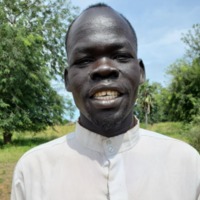
Makuom Mawein Tong
There are an estimated 465,000 people living in modern slavery in Sudan (GSI 2018). Between 1983 and 2005, the central government of Sudan enslaved tens of thousands of black South Sudanese Christian and traditionalist people. It was part of a genocidal war against South Sudan, with a simple aim: to force South Sudan to become Arab and Muslim. Makuom was born in Akoch Atong Mabil village, north of Aweil town. As a young boy in 1980s his father enrolled him in a school near his village, but a few days later, news was everywhere that Arabs were planning to attack Dinka tribe villages. His father pulled him from school and kept him at home because he was so afraid of Arab attack. At night during the dry season, Arabs attacked his village. Makuom ran and hid in a nearby forest. Many people from his village ran to the forest, but Arabs followed them. His father was killed by Arabs and captured him with others. All children who were captured were forced to walk with Arabs to north Sudan.
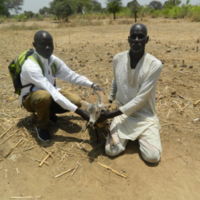
Kolong Guot Mayuol
There are an estimated 465,000 people living in modern slavery in Sudan (GSI 2018). Between 1983 and 2005, the central government of Sudan enslaved tens of thousands of black South Sudanese Christian and traditionalist people. It was part of a genocidal war against South Sudan, with a simple aim: to force South Sudan to become Arab and Muslim. Kolong Guot Mayuol was abducted in 1992, taken to northern Sudan and forced to work in a cattle camp.
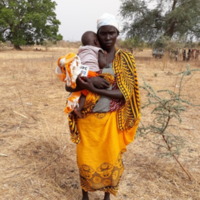
Abuk Akot Wol
There are an estimated 465,000 people living in modern slavery in Sudan (GSI 2018). Between 1983 and 2005, the central government of Sudan enslaved tens of thousands of black South Sudanese Christian and traditionalist people. It was part of a genocidal war against South Sudan, with a simple aim: to force South Sudan to become Arab and Muslim. Abuk Akot Wol was kidnapped one morning and taken to northern Sudan. She tells of her experience.
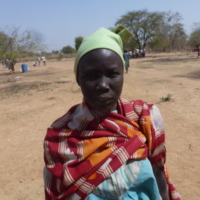
Titleeng Deng Chan
There are an estimated 465,000 people living in modern slavery in Sudan (GSI 2018). Between 1983 and 2005, the central government of Sudan enslaved tens of thousands of black South Sudanese Christian and traditionalist people. It was part of a genocidal war against South Sudan, with a simple aim: to force South Sudan to become Arab and Muslim. Titleeng Deng Chan was captured in 2000 and forced to walk to North Sudan, raped by four men on the way and given to her ‘master’ upon arrival. She was finally liberated in 2016 after meeting with a slave retriever.
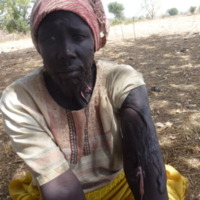
Alom Kuol Koor
There are an estimated 465,000 people living in modern slavery in Sudan (GSI 2018). Between 1983 and 2005, the central government of Sudan enslaved tens of thousands of black South Sudanese Christian and traditionalist people. It was part of a genocidal war against South Sudan, with a simple aim: to force South Sudan to become Arab and Muslim. Alom Kuol Koor was captured in 1998 and forced to walk to north Sudan. Upon arrival he was given to her ‘master’ and forced into domestic servitude. He was finally liberated in 2016 when he escaped and met with a slave retriever in a neighbouring village.
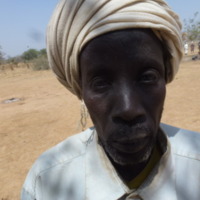
Adup Aguer Deng
There are an estimated 465,000 people living in modern slavery in Sudan (GSI 2018). Between 1983 and 2005, the central government of Sudan enslaved tens of thousands of black South Sudanese Christian and traditionalist people. It was part of a genocidal war against South Sudan, with a simple aim: to force South Sudan to become Arab and Muslim. Adup Aguer Deng was captured in 1998 after being found hiding in a forest amidst fighting between the SPLA and Arabs. After being walked to northern Sudan she was forced to work on a farm and convert to Islam. Adup was finally freed in 2016.
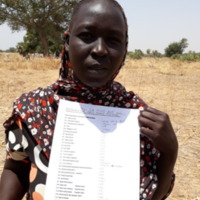
Dhan Deng Bol
There are an estimated 465,000 people living in modern slavery in Sudan (GSI 2018). Between 1983 and 2005, the central government of Sudan enslaved tens of thousands of black South Sudanese Christian and traditionalist people. It was part of a genocidal war against South Sudan, with a simple aim: to force South Sudan to become Arab and Muslim. Dhan Deng Bol was abducted in 1998. She tells of her experience that ended in those captured being divided amongst their kidnappers and forced into domestic service.
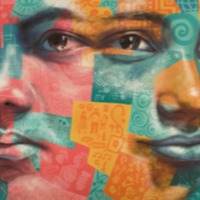
Adaku
There are an estimated 1,386,000 people living in modern slavery in Nigeria (GSI 2018). Since 2009, Nigeria’s homegrown Islamist insurgent movement, Jama’atu Ahlis Sunna Lidda’awati wal-Jihad, popularly known as Boko Haram, which means “Western Education is Forbidden,” has waged a violent campaign against the Nigerian government in its bid to impose Islamic law. The attacks have increasingly targeted civilians, mainly in the northeastern states of Borno, Yobe, and Adamawa. Borno State, the birthplace of Boko Haram, has suffered the highest number of attacks. A range of issues, including widespread poverty, corruption, security force abuse, and longstanding impunity for a range of crimes have created fertile ground in Nigeria for militant armed groups like Boko Haram. Adaku, A 20-year old woman was abducted in May 2013 when she ran into a roadblock mounted by insurgents at Firgi, near Bama.
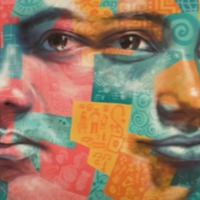
Saidu
There are an estimated 36,000 people living in conditions of modern slavery in Sierra Leone (GSI 2018). Sierra Leone is a source and destination country for men, women and children subjected to forced labour and sex trafficking. During the Sierra Leone Civil War 1991 to 2002 the Revolutionary United Front (RUF) sought to mobilise a youth underclass to form a ‘people’s army’ to overthrow the Momoh regime. The RUF abducted and trained numbers of captured youth to fight as child soldiers in their guerrilla warfare. Saidu emphasises the difficulties faced even by those not tainted with RUF violence in going back home. It is this wartime suspicion and hostility on the part of both civilians and military towards any dishevelled 'bush creature' that explains why the RUF/ SL strategy of abducting young Sierra Leoneans and turning them into combatants by force was so surprisingly effective. Once caught, most young people soon realised they had nowhere to run-that they risked death at the hands of government soldiers and civilians.
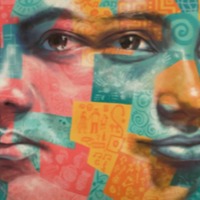
Musa
There are an estimated 36,000 people living in conditions of modern slavery in Sierra Leone (GSI 2018). Sierra Leone is a source and destination country for men, women and children subjected to forced labour and sex trafficking. During the Sierra Leone Civil War 1991 to 2002 the Revolutionary United Front (RUF) sought to mobilise a youth underclass to form a ‘people’s army’ to overthrow the Momoh regime. The RUF abducted and trained numbers of captured youth to fight as child soldiers in their guerrilla warfare. Musa, now about 20, was captured and forcibly inducted by the RUF/SL in a raid into north-western Sierra Leone in January 1995. Although he completed guerrilla training and served on operations, he never gained any promotion in the movement, remaining ambivalent about the struggle. He is frank that his lack of conviction was more a question of the hardship than of any political objection. He found that the RUF's ideological teaching about the state of Sierra Leone made sense. When interviewed in October 1996 he had managed to escape four weeks previously, after nearly two years, and had been re-accepted in his home community, a town not badly affected by the war. Musa provides a remarkable account of RUF/SL aims and operations, and of life in one of the guerrilla camps. In some respects, the account supports the picture the movement paints in its own propaganda document (RUFSL, 1995). The Gurkhas referred to in the account were a mercenary force of ex-Gurkhas led by a Canadian Vietnam veteran [Colonel Robert Mackenzie] hired by the NPRC government. Mackenzie was killed, and the survivors were withdrawn shortly afterwards, to be replaced by the South African private security firm Executive Outcomes.]
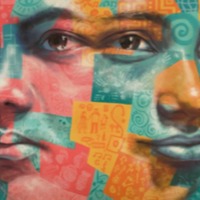
Jewell
There are an estimated 403,000 people living in modern slavery in the United States (GSI 2018). Sex trafficking exists throughout the country. Traffickers use violence, threats, lies, debt bondage and other forms of coercion to compel adults and children to engage in commercial sex acts against their will. The situations that sex trafficking victims face vary, many victims become romantically involved with someone who then forces them into prostitution. Others are lured with false promises of a job, and some are forced to sell sex by members of their own families. Victims of sex trafficking include both foreign nationals and US citizens, with women making up the majority of those trafficked for the purposes of commercial sexual exploitation. In 2015, the most reported venues/industries for sex trafficking included commercial-front brothels, hotel/motel-based trafficking, online advertisements with unknown locations, residential brothels, and street-based sex trafficking. Jewell Baraka was exploited for three years in prostitution and three years in pornography in the 1980s and 1990s, from age 11 to 17, in Portland, Oregon. Her narrative is from an interview with Francine Sporenda for the Révolution Féministe website, originally published in French and then in English by Nordic Model Now!, a UK secular, feminist, grassroots women’s group campaigning for the abolition of prostitution and related practices.
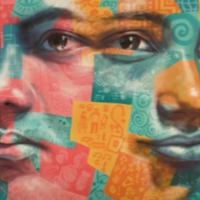
Dut Yai Yai
Dut Yai Yai was ‘redeemed’ (bought out of slavery) by Christian Solidarity International (CSI), a Zurich-based international human rights organization, in January 2007. He told his story to CSI staff in Aweil State, Southern Sudan. Along with the three main types of modern slavery (chattel slavery, debt bondage, and contract slavery), war slavery is another form of contemporary bondage. Thousands of women and children were taken into slavery during the decades of Sudan’s civil war, mainly from Northern Bahr El Ghazal and the Nuba Mountains. Slave-taking was revived in 1985 by the National Islamic government of Sudan primarily as a weapon against counterinsurgents in the South, and secondarily a way to reimburse its surrogate soldiers for neutralizing this threat. In 1989 the government created the Popular Defense Forces (PDF), militia trained to raid villages and take people as slaves. PDF recruits were allowed to keep whoever they captured, along with booty of grain and cattle. One study documents 12,000 abductions by name, while NGOs offer estimates ranging from 15,000 to 200,000. The slaves were often moved to large towns in the north on week-long journeys during which the women were repeatedly raped, and then sold to new masters who used them without pay for farming and sexual services. The peace process brought these PDF abductions to an end, but inter-tribal abductions continue in Southern Sudan. In addition, Sudanese children are used by rebel groups in the ongoing conflict in Darfur; Sudanese boys from the country’s eastern Rashaida tribe continue to be trafficked to the Middle East for use as camel jockeys; the rebel organization “Lord’s Resistance Army” has forcibly conscripted children in Southern Sudan for use as combatants in its war against Uganda; and the institution of chattel slavery continues in southern Darfur and southern Kordofan.
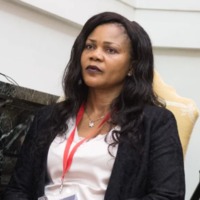
Princess
Italy is a destination, transit, and source country for women, children, and men subjected to sex trafficking and forced labour. Victims originate from Nigeria, Romania, Morocco, China, and other countries. Female victims are often subjected to sex trafficking in Italy after accepting promises of employment as dancers, singers, models, restaurant servers, or caregivers. Romanian and Albanian criminal groups force Eastern European women and girls into commercial sex. Princess, a mother of four children and a grandmother of two, was a cook in a traditional restaurant in Akwa Ibom State in Nigeria. In 1999 she was approached by a woman who visited the restaurant and promised her a job as a cook in Italy. She was invited to a luxury hotel in Benin City – the capital of Edo State in southern Nigeria. Unfortunately, the life-changing opportunity on offer was anything but. The Italian woman was a Madam from Turin and, having brought Princess into the country, sold her into prostitution and told her she would have to repay $45,000.
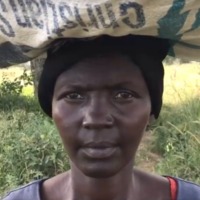
Adut Ageny
There are an estimated 465,000 people living in modern slavery in Sudan (GSI 2018). Between 1983 and 2005, the central government of Sudan enslaved tens of thousands of black South Sudanese Christian and traditionalist people. It was part of a genocidal war against South Sudan, with a simple aim: to force South Sudan to become Arab and Muslim. Adut Ageny was abducted from her village and held in enslavement for five years when she was a child.
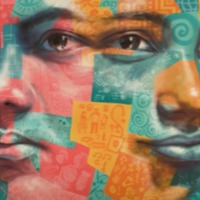
Phuong-Anh Vu
There are an estimated 17,000 people living in modern slavery in Jordan (GSI 2018). Jordan is a source, transit and destination country for adults and children subjected to forced labour, domestic servitude and sex trafficking. People are trafficked primarily from South and Southeast Asia, East Africa, Egypt and Syria. Forced labour victims experience withheld or non-payment wages, confiscation of identity documents, restricted freedom of movement, unsafe living conditions, long hours without rest, isolation, and verbal and physical abuse. Jordan relies on foreign migrant workers – many of whom are undocumented – in several sectors, including construction, agriculture, textiles, and domestic work. Phuong-Anh Vu paid a large sum of money to participate in the labour export program in 2008. She was transferred to Jordan to work in a sewing factory. Upon arrival Phuong-Anh discovered that she was to work long hours for very little pay. When she and others went on strike, her employers restricted her food and water and subjected all strikers to severe beatings. Phuong-Ang was taken to Thailand by the Vietnamese government after contacting a newspaper about her working conditions.
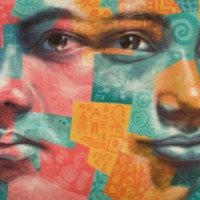
Rayowa
There are an estimated 1,386,000 people living in modern slavery in Nigeria (GSI 2018). Since 2009, Nigeria’s homegrown Islamist insurgent movement, Jama’atu Ahlis Sunna Lidda’awati wal-Jihad, popularly known as Boko Haram, which means “Western Education is Forbidden,” has waged a violent campaign against the Nigerian government in its bid to impose Islamic law. The attacks have increasingly targeted civilians, mainly in the northeastern states of Borno, Yobe, and Adamawa. Borno State, the birthplace of Boko Haram, has suffered the highest number of attacks. A range of issues, including widespread poverty, corruption, security force abuse, and longstanding impunity for a range of crimes have created fertile ground in Nigeria for militant armed groups like Boko Haram.In some cases, women and children are abducted from predominantly Christian areas and forced to convert to Islam. As an attempt to escape, some would pretend to be Muslim. Where forced conversion did not lead to the release of abductees, it usually led to forced marriage to members of Boko Haram. 38-year-old Rayowa* was abducted in April 2014 with five other Christian women and two infants.
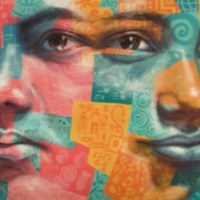
Ndidi
There are an estimated 1,386,000 people living in modern slavery in Nigeria (GSI 2018). Since 2009, Nigeria’s homegrown Islamist insurgent movement, Jama’atu Ahlis Sunna Lidda’awati wal-Jihad, popularly known as Boko Haram, which means “Western Education is Forbidden,” has waged a violent campaign against the Nigerian government in its bid to impose Islamic law. The attacks have increasingly targeted civilians, mainly in the northeastern states of Borno, Yobe, and Adamawa. Borno State, the birthplace of Boko Haram, has suffered the highest number of attacks. A range of issues, including widespread poverty, corruption, security force abuse, and longstanding impunity for a range of crimes have created fertile ground in Nigeria for militant armed groups like Boko Haram. In some cases, women and children are abducted from predominantly Christian areas and forced to convert to Islam. These abductions took place most often in Boko Haram’s then-strongholds of Maiduguri, the Borno State capital, or Damaturu, the capital of neighboring Yobe State. In most of the documented cases, married women were abducted as punishment for not supporting the group’s ideology, while unmarried women and girls were taken as brides after insurgents hastily offered a dowry to the families, who feared to resist.Ndidi*, held by Boko Haram in a camp near Gwoza, described how Boko Haram combatants placed a noose around her neck and threatened her with decapitation when she refused to renounce her religion.
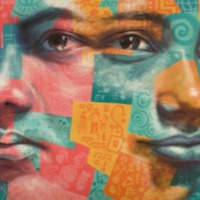
Hauwa
There are an estimated 1,386,000 people living in modern slavery in Nigeria (GSI 2018). Since 2009, Nigeria’s homegrown Islamist insurgent movement, Jama’atu Ahlis Sunna Lidda’awati wal-Jihad, popularly known as Boko Haram, which means “Western Education is Forbidden,” has waged a violent campaign against the Nigerian government in its bid to impose Islamic law. The attacks have increasingly targeted civilians, mainly in the northeastern states of Borno, Yobe, and Adamawa. Borno State, the birthplace of Boko Haram, has suffered the highest number of attacks. A range of issues, including widespread poverty, corruption, security force abuse, and longstanding impunity for a range of crimes have created fertile ground in Nigeria for militant armed groups like Boko Haram. Hauwa was abducted by Boko Haram in 2013. She was forced to convert to Islam and kill for the insurgents. Hauwa was able to escape forced marriage in the camp where she was being held by pretending to have stomach pains and being sent to the hospital.
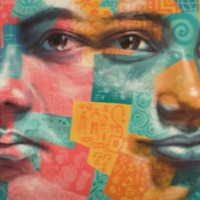
Gloria
There are an estimated 1,386,000 people living in modern slavery in Nigeria (GSI 2018). Since 2009, Nigeria’s homegrown Islamist insurgent movement, Jama’atu Ahlis Sunna Lidda’awati wal-Jihad, popularly known as Boko Haram, which means “Western Education is Forbidden,” has waged a violent campaign against the Nigerian government in its bid to impose Islamic law. The attacks have increasingly targeted civilians, mainly in the northeastern states of Borno, Yobe, and Adamawa. Borno State, the birthplace of Boko Haram, has suffered the highest number of attacks. A range of issues, including widespread poverty, corruption, security force abuse, and longstanding impunity for a range of crimes have created fertile ground in Nigeria for militant armed groups like Boko Haram. Gloria was abducted by Boko Haram in 2014. She was forced to convert to Islam, was married off to an insurgent and subjected to sexual violence.
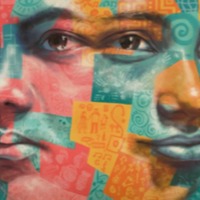
Hadiza
There are an estimated 1,386,000 people living in modern slavery in Nigeria (GSI 2018). Since 2009, Nigeria’s homegrown Islamist insurgent movement, Jama’atu Ahlis Sunna Lidda’awati wal-Jihad, popularly known as Boko Haram, which means “Western Education is Forbidden,” has waged a violent campaign against the Nigerian government in its bid to impose Islamic law. The attacks have increasingly targeted civilians, mainly in the northeastern states of Borno, Yobe, and Adamawa. Borno State, the birthplace of Boko Haram, has suffered the highest number of attacks. A range of issues, including widespread poverty, corruption, security force abuse, and longstanding impunity for a range of crimes have created fertile ground in Nigeria for militant armed groups like Boko Haram. Hadiza was abducted from her village by Boko Haram in November 2013. Though she tried to escape, she was captured, forced to convert to Islam and married off to an insurgent.